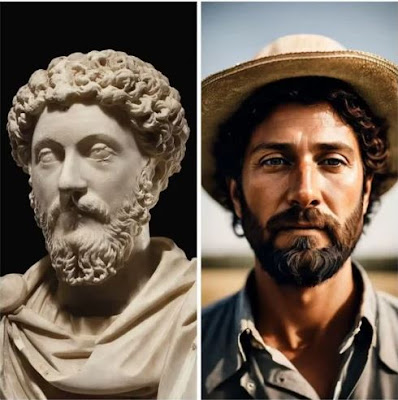There are a lot of special tools that we use in the Quality business to analyze problems and identify causes, but it can be helpful to remember that the core idea is a very old one. It is simply that we can learn from our mistakes if we approach them with calm and curiosity rather than with hatred, anger, or scorn.
In a delightful synchronicity, last week (while I was posting about 5-Why problem-solving) Ryan Holiday of the Daily Stoic posted on this exact topic under the heading, "You Should Ask Yourself This Question When You Mess Up." He wrote, in part:
Look, we all mess up. We take certain people or clients for granted and a relationship deteriorates. We get distracted and make an unnecessary mistake. We are overwhelmed by a passion or a temper and do something bad.
We’re humans. It happens.
What follows are consequences. The client leaves us. The mistake costs money to repair. An apology turns out to be insufficient.
And what follows consequences is often regret, and sometimes shame. Or, if we are less self-aware, anger and blame....
This sort of self-flagellation is not what Stoicism is about. It’s backward looking–the worst, most purposeless kind of personal evaluation. Instead, when we mess up, and when we come face to face with the consequences of our actions, we must ask: What can I learn from this?
Literally, we can ask that to the client who is leaving us (What can I do better next time? What warning signs did I miss?). We can look at our habits and study where we got distracted and made that boneheaded mistake....
One way to look at Marcus Aurelius’s Meditations is that it is ... admonishments to himself after messing up. He was cruel to someone, and so the next morning he wrote about controlling his anger. He’d been wasting time recently, and so he wrote about the shortness of life....
It’s inevitable that you will do wrong. You may even mess something up five minutes after reading this email. What matters... is not the mistakes .... [but] what lessons emerge from the missteps, and how we improve because of them.
I read this and thought, Isn't this just what we've been talking about here, all along?
- "Look, we all mess up." ("'Human error' is not a real root cause [because it's not actionable]. We'll never get rid of 'human error' any more than we can live on a planet without oxygen.")
- "What follows are consequences." ("The whole difference between success and failure came down to meeting minutes. For want of a nail, a kingdom was lost.")
- "When we mess up ... we must ask: What can I learn from this?" ("It is not going too far to see the whole collection of Quality methods as the output of a huge, ongoing, worldwide Lessons Learned activity.")
- "What matters... is not the mistakes .... [but] how we improve because of them." ("Lying to your auditor is like disabling your fire alarm: sure, the noise won't interrupt you, but wouldn't you rather know if there were a fire?")
Knowing that the Quality point of view was anticipated by the Stoics two thousand years ago doesn't make it any easier in the moment. When we send a whole shipment of tools to Amsterdam and they all fail out of the box, we still have to put in the hard work to figure out what went wrong. But it can be reassuring to know that someone else has been down this road before. And when we learn that even Marcus Aurelius had trouble holding his temper in a crisis, oddly enough that may help us hold ours.






Great post. There is a lot to be learned from Marcus Aurelius and I love the connection to QA and failure modes.
ReplyDeleteThank you so much. I'm glad you liked it!
ReplyDelete